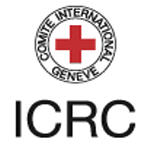Red Cross Appeals for Access to Victims of Congo Conflict
By VOA News | Published September 30, 2008
Schlein report - Download (MP3)
![]()
Schlein report
- Listen (MP3)![]()

The International Committee of the Red Cross is calling for all warring parties in the eastern Democratic Republic of Congo to respect the Red Cross emblem. The humanitarian situation has deteriorated in North and South Kivu provinces since fighting between Congolese government troops and rebels resumed at the end of August. Lisa Schlein reports for VOA from ICRC headquarters in Geneva.
The International Committee of the Red Cross estimates more than 100,000 people have fled their homes since fighting resumed a month ago. ICRC Spokeswoman Anna Schaafe tells VOA many of these people have been displaced several times. And, as in the past, she says many have run away with just the clothes on their back.She says it is hard to track down the displaced because they are constantly on the move. Unlike other war situations, she says there are no organized camps for displaced people in North and South Kivu. She says they live with family or friends or set up makeshift shelters.
"It is difficult to locate them. It is also difficult to have access because of the poor security conditions. The ICRC has been able to assist some of the displaced in the recent weeks," says Schaafe. "But we did not get access to all the areas and mostly not to those who were the hardest hit by the hostilities ... We would like to bring the ... emergency needs, which would be health care and drinking water for all the people who need it. But, unfortunately, we are only able to access part of those who are displaced and not all of them."
The Red Cross reports the eruption of violence between Congolese government troops and rebel factions has involved many violations of human rights, including looting and rape.
Schaafe says the Red Cross has provided medicines and medical supplies for treating the wounded to 17 health-care facilities in North Kivu. She says the Red Cross has also been able to deliver drinking water for 10,000 people in the province.
"In addition to that,' says Schaafe, "the ICRC is trying to maintain the actual activities we had before the fighting took off again, which were food distributions for over 40,000 people that were ongoing and that we hope to be able to carry out now, as well as distributions of seeds and tools for people who had the possibility to return to their homes just before the fighting started. So, we need to assess now carefully how the situation evolves before we can be sure that we can actually continue the programs we had before."
Under international humanitarian law, Schaafe says all parties to the conflict must protect the lives and health of the civilian population, as well as people who are wounded or captured during the fighting.
She says the Red Cross is in contact with all the warring parties to remind them of their obligations and to urge them to allow Red Cross aid workers carry out relief operations for people in need.







